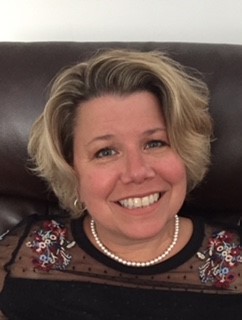Director of the 60 & Better Center and Services Susan Bradley-Meyer began to worry when she noticed changes in her mom.
Her mom wouldn’t comprehend conversations, would sometimes get stuck on a topic that had passed, or would forget to take her medications. This became difficult to manage because her mom lives in another state.
Although there was not a dementia diagnosis at the time for her mom, Susan felt it was coming and she needed to find ways to help her mom and their relationship. Handling situations like this is not a new concept for Susan, but she didn’t realize how much information was out there to help her.
“Being in this kind of work for 28 years, I have a pretty good understanding of how to work with seniors,” Susan said. “But there is still more to learn. I learned new skills that I would have never thought to use.”
That’s when Susan invited her brother, Bill Bradley, to join her for Five Weeks to Change, which is a support series offered through the Mayerson JCC, by Diane Slovin, a Positive Approach to Careâ Advanced Consultant. The series is designed for family care partners of someone living with dementia to provide opportunities for them to learn strategies to best meet their needs and to reduce stress.
“Dementia is everywhere and cases will unfortunately be multiplying,” Five Weeks to Change facilitator Diane Slovin said. “The importance of the series is recognizing that handling this situation is not intuitive. Can we just cope? Yes, but we can do so much better for our loved ones.”
Slovin facilitates this series with 60 & Better social worker Louis Liner, and it is offered virtually so it’s accessible to anyone who needs support. Because of a grant from the Jewish Home of Cincinnati, this series is offered at a low cost to anyone who wants to take it. Having this virtual live and interactive course helps relieve some of the logistical pressures of seeking out support. Many find it difficult to leave their homes because they are caring for a loved one at home. Others do not live near their loved ones or other involved family members.
Slovin wants people to understand what is happening in the brain with this disease. Dementia is not just memory loss. It affects so much more. There is no known cure, and someone can have dementia for many years, so it’s important to develop skills to address the challenges. It’s a chronic disease, so learning how to improve interactions with loved ones is vital.
“When someone has dementia, we know that at least two parts of their brain are dying,” Slovin said. That’s a really difficult thing for people to hear, but it validates that your person isn’t just trying to be difficult. By realizing that there is something physiological going on, it gives us an extra boost of patience and compassion to help.”
Susan has been able to use the skills she found in the Five Weeks to Change course, especially after learning more about the disease and understanding the background.
She has found one skill to be particularly useful: redirection.
“When my brother, who lives near my mom, was going on vacation, my mom called me up really upset about it,” Susan said. “Even though I explained it was just vacation and he was coming back, it still wasn’t clicking. In these situations, it’s better to redirect, so I said, ‘Hey, mom, I’m ordering those shirts off Amazon. Do you want red or blue?’ and she was able to calm down and focus on the new topic.”
With this series, participants not only learn skills on how to care for their person, but they also learn how to take care of themselves. Bill finds that the relaxation techniques have been the most helpful. When he feels like he doesn’t understand the situation and starts to get upset, he takes a moment to do deep breathing exercises.
Because both siblings participated in the series, they are on the same page with how to handle challenging situations with their mom. This has been helpful because now neither one of them feels like they are on their own. Susan even notes that their other brother hasn’t taken the course and is often out of the loop or struggling more. Because of that, he is planning to take the next session.
Slovin says that it can make an amazing difference in quality of life for all when family members are all hearing the same information and acting as a team. Since the course is held on Zoom, it makes it easy for family members to join the series together even if they don’t live near each other.
“My sister asked me to take the class with her, and it ended up being a really good experience,” Bill said. “I was leery at first, but I could see new benefits every week. I had a difficult time engaging with my mom, but now that I have an understanding, my patience has grown significantly.”
This can be a difficult time for people caring for a loved one, especially when they feel like they are completely alone.
Fortunately, there is a sense of community and support formed among the people who take the course. Susan said she has run into others from the class at the J and they usually ask how her mom is doing. She can catch up with them, too.
When one of the series’ participant’s dads passed away, Bill sent a sympathy card to them. Bill’s advice for anyone experiencing these difficult situations is to sign up and stick with it.
“Anyone can take it,” Bill said. “I made a conscious effort to do the homework each time, and it really helped me grow. Just stick with it, and it does benefit you.”
“You don’t have to do this alone,” Slovin said. “There is power in learning skills that will enhance the quality of life for your loved one and yourself. This is a marathon, not a sprint. Let’s make this easier and improve quality of life for everyone.”

